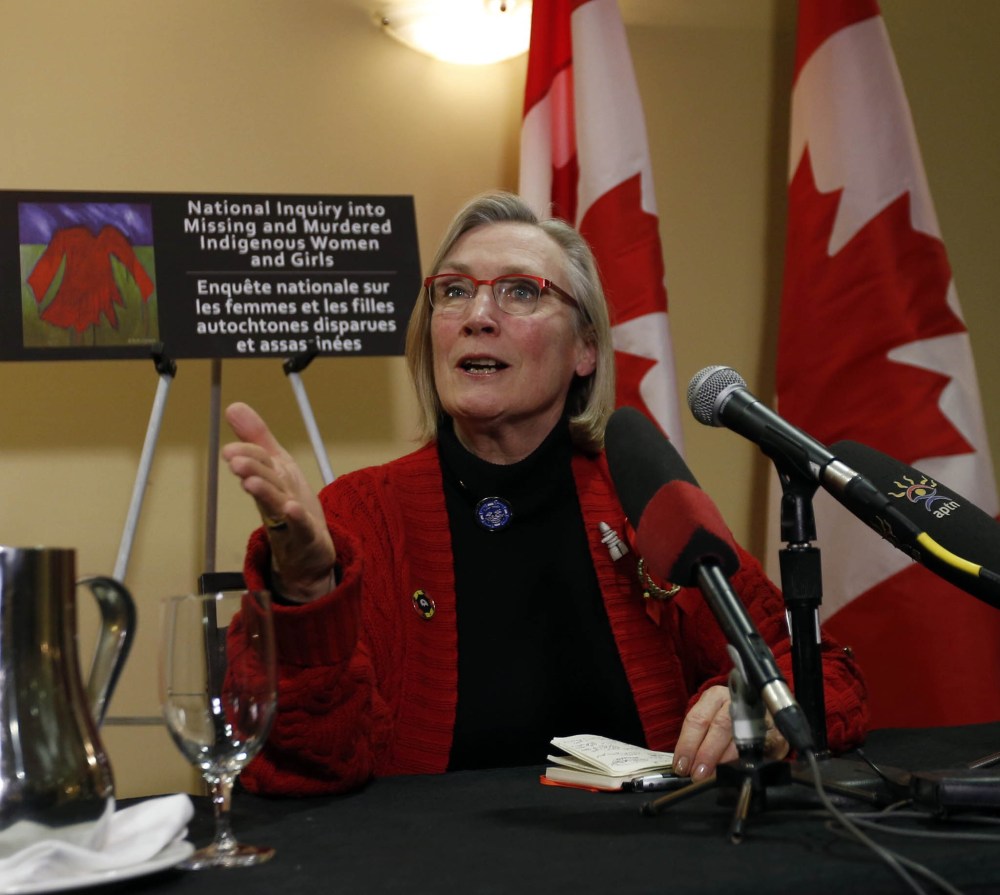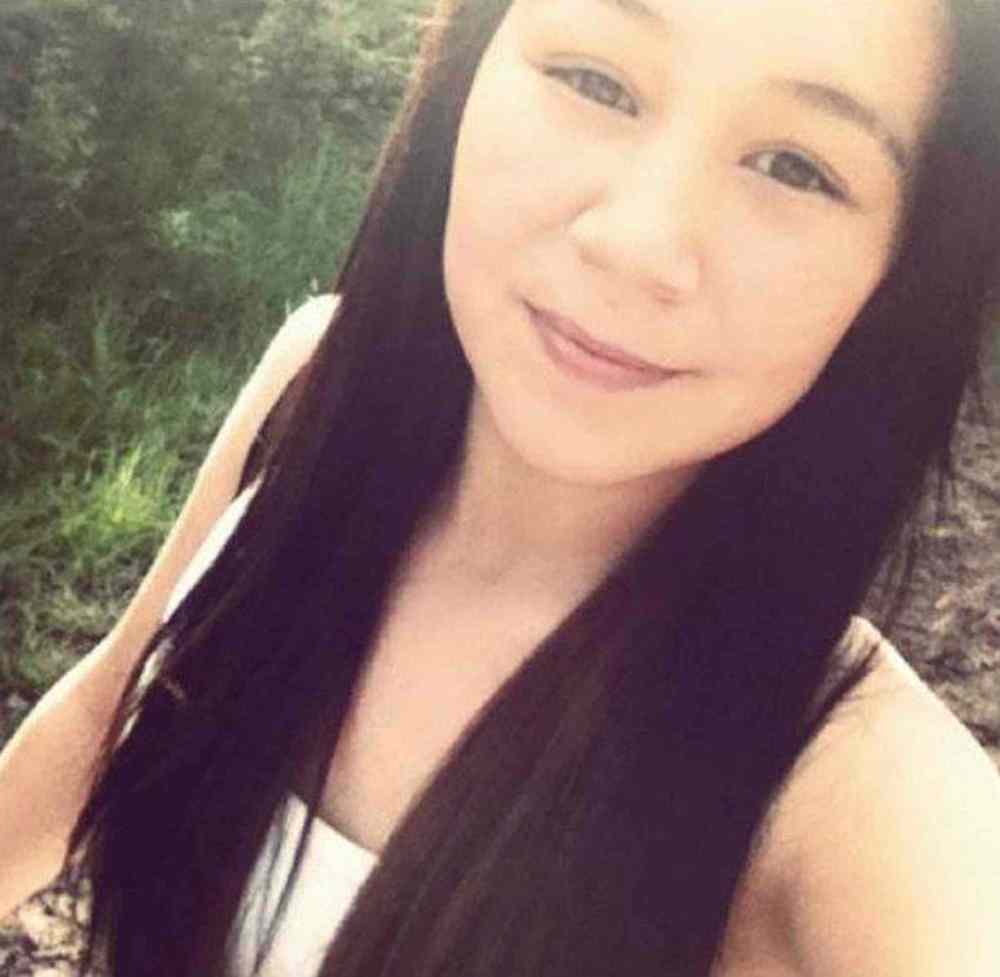Families voice skepticism as Bennett discusses missing and murdered inquiry
Advertisement
Read this article for free:
or
Already have an account? Log in here »
To continue reading, please subscribe:
Monthly Digital Subscription
$0 for the first 4 weeks*
- Enjoy unlimited reading on winnipegfreepress.com
- Read the E-Edition, our digital replica newspaper
- Access News Break, our award-winning app
- Play interactive puzzles
*No charge for 4 weeks then price increases to the regular rate of $19.00 plus GST every four weeks. Offer available to new and qualified returning subscribers only. Cancel any time.
Monthly Digital Subscription
$4.75/week*
- Enjoy unlimited reading on winnipegfreepress.com
- Read the E-Edition, our digital replica newspaper
- Access News Break, our award-winning app
- Play interactive puzzles
*Billed as $19 plus GST every four weeks. Cancel any time.
To continue reading, please subscribe:
Add Free Press access to your Brandon Sun subscription for only an additional
$1 for the first 4 weeks*
*Your next subscription payment will increase by $1.00 and you will be charged $16.99 plus GST for four weeks. After four weeks, your payment will increase to $23.99 plus GST every four weeks.
Read unlimited articles for free today:
or
Already have an account? Log in here »
Hey there, time traveller!
This article was published 08/02/2016 (3554 days ago), so information in it may no longer be current.
Desperate for answers three years after her niece was killed in God’s Lake Narrows First Nation, Josie Stevenson says a national inquiry into missing women must focus in part on how police investigate murders.
And she said her family has asked RCMP to conduct the kind of widespread DNA testing in God’s Lake Narrows that’s now underway in Garden Hill, where the murder of another young First Nations girl remains unsolved.
“How many people live on the reserve? Two-thousand?” asked Stevenson. “It’s been three years. I’m just hoping they pay more attention.”

Stevenson was among 170 people — advocates, family members and aboriginal leaders — who met in Winnipeg Monday with Indigenous and Northern Affairs Minister Carolyn Bennett to discuss what a national inquiry into missing and murdered women ought to look like.
Many have called for the inquiry to have a broad scope, including the root causes of systemic racism and misogyny, but Stevenson said she also wants the inquiry to look at how individual cases are handled by police.
The RCMP don’t appear to be doing enough to solve her niece’s murder, don’t have enough resources and don’t keep in touch or share information with the family, said Stevenson.
“We don’t know how she died,” said Stevenson. “We don’t even know what day she died.”
Leah Anderson’s body was found badly beaten on a snowmobile trail in early January 2013. She was last seen by family heading out to meet friends at the community’s skating rink. No arrests have ever been made in the 15-year-old’s death.
Stevenson said her brother-in-law has asked RCMP to conduct widespread DNA tests in God’s Lake but instead police are doing it in Garden Hill to help find the person responsible for the death of 11-year-old Teresa Robinson. As in Leah’s case, Teresa’s death in May was originally attributed to an animal mauling.
Monday, following a morning sharing circle, Bennett said Winnipeg is “ground zero” for the national epidemic of missing and murdered indigenous women, but said victims’ families are skeptical a national inquiry will help.
Bennett said she heard deep frustration from families with police, government and the outcome of an inquiry.
“Here in Winnipeg, there seems to be tremendous anger and cynicism,” said Bennett. “These were tough messages, and we obviously have to do a great deal of work to earn their confidence.”
Bennett said she also heard more in Winnipeg from gay, lesbian and transgender people who told her they have felt largely left out of the debate over missing and murdered women.

Bennett’s meeting at the Fairmont Hotel was part of a 16-city series of gatherings meant to help the Trudeau government design the inquiry. The consultation meetings with advocates, community organisations and victims’ families began in December and will last through this month as groups weigh in on the inquiry’s mandate, scope, process and possible commissioners.
Winnipeg’s meeting was roughly the same size as the largest meeting so far, in Vancouver.
Bennett said she hopes the inquiry will begin in July. But she offered no hints about who might lead the inquiry except to say she listening carefully to a variety of opinions, including those calling for an indigenous woman or a judge to lead the process.
The minister said national debate over the issue of violence against indigenous women was ignited in large part in Winnipeg, especially since the death of 15-year-old Tina Fontaine in August 2014 and the assault suffered by Rinelle Harper, then 16, a few weeks later.
Bennett also noted another indigenous woman — 39-year-old Mavis Ducharme — was slain over the weekend, giving the issue urgency in Winnipeg.
“It’s pretty raw here,” she said. “This is still happening. This isn’t stopping… Every week it seems there is some tragedy that happens.”
maryagnes.welch@freepress.mb.ca
History
Updated on Monday, February 8, 2016 5:01 PM CST: headline change
Updated on Monday, February 8, 2016 6:01 PM CST: writethrough



